
Bethany Brookshire
Bethany Brookshire was the staff writer at Science News for Students from 2013 to 2021. She has a B.S. in biology and a B.A. in philosophy from The College of William and Mary, and a Ph.D. in physiology and pharmacology from Wake Forest University School of Medicine. She is also a host on the podcast Science for the People, and a 2019-2020 MIT Knight Science Journalism Fellow.

Trustworthy journalism comes at a price.
Scientists and journalists share a core belief in questioning, observing and verifying to reach the truth. Science News reports on crucial research and discovery across science disciplines. We need your financial support to make it happen – every contribution makes a difference.
All Stories by Bethany Brookshire
-
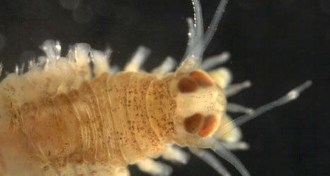 Neuroscience
NeuroscienceMelatonin and the watery beginnings of sleep
The tiny zooplankton Platynereis dumerilii use melatonin just as much as we do, suggesting that the origins of sleeplike behavior may lie under the sea.
-
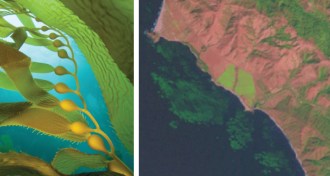 Ecosystems
EcosystemsHelp scientists find floating forests of kelp
By looking for signs of kelp in satellite images, citizen scientists can help researchers keep track of the world’s seaweed forests.
-
 Animals
AnimalsLacking ice, huge walrus herd congregates on Alaska shore
A large group of walruses has hauled out on the beach near Point Lay, Alaska. The animals have been forced onto shore due to a lack of sea ice in the region.
-
 Health & Medicine
Health & MedicineStill waiting on a cure for diabetes
Diabetes diagnoses have skyrocketed in the past 50 years. While there are now better medications and options for control, there is still only hope of a cure.
-
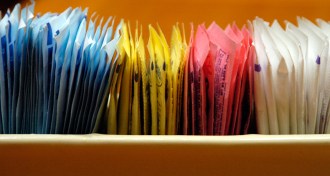 Health & Medicine
Health & MedicineThe sour side of artificial sweeteners
A new study found that saccharin alters the gut microbiome of mice and produces insulin resistance, but it’s not the first to show the sour side of diet drinks.
-
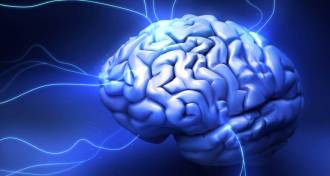 Psychology
PsychologyBalancing the excitation and inhibition tightrope in depression
A new study looks at how a balance of positive and negative inputs in the lateral habenula might relate to disappointment and depression.
-
 Science & Society
Science & SocietyBanana peel slipperiness wins IgNobel prize in physics
Cartoons taught us that banana peels make for a slick trip to the floor, but scientists decided to find out just how slippery they could be.
-
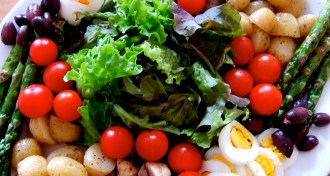 Psychology
PsychologyTraining the overweight brain to abstain
A new study shows that brain changes are associated with a weight-loss behavioral intervention, but it may be a while before we can train our brains to prefer peppers over pork chops.
-
 Psychology
PsychologyIn PTSD, a good night’s sleep means feeling safe
Studies of PTSD in rats have usually focused on fear and trauma. But a new study in humans shows that learning about safety may be important as well.
-
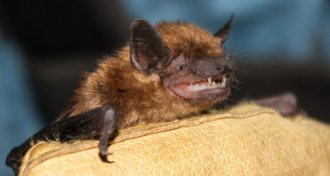 Neuroscience
NeuroscienceTo study attention, pay attention to bats
Studying how bats’ brains find prey using echolocation could have implications for the way human brains pay attention.
-
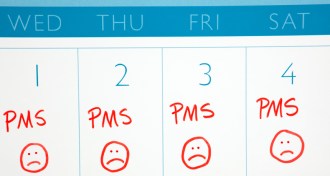 Psychology
PsychologyHypothesis on evolution of PMS attracts hostility
A new hypothesis states that PMS is evolutionarily useful for making women leave an infertile partnership. But other scientists question whether the hypothesis is reasonable or, in fact, even necessary.
-
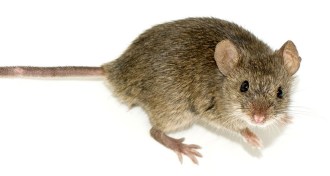 Health & Medicine
Health & MedicineTaking lab mice back to their roots
Lab mice are incredibly useful for biomedical research. But they are also incredibly inbred. A new study shows that bringing wild mouse traits back could help uncover new links between genes and behavior.